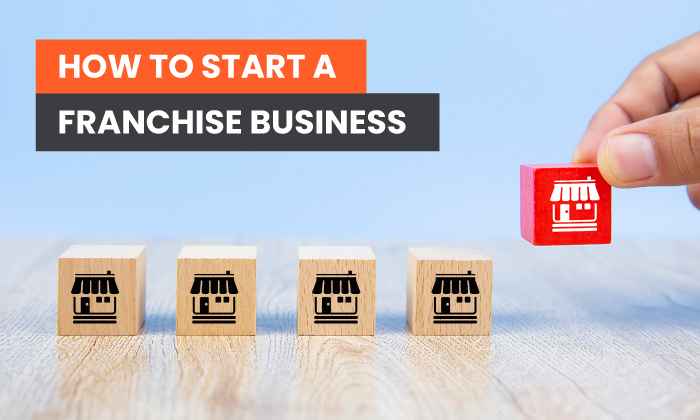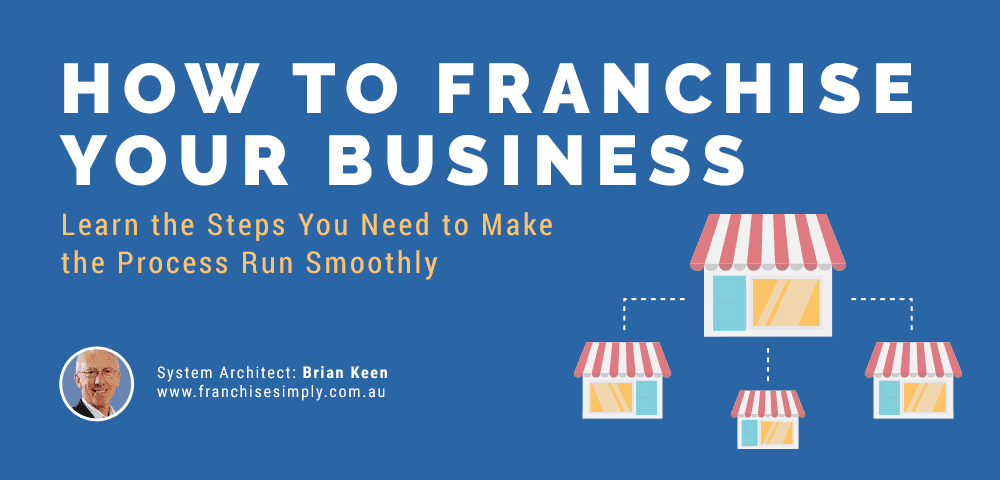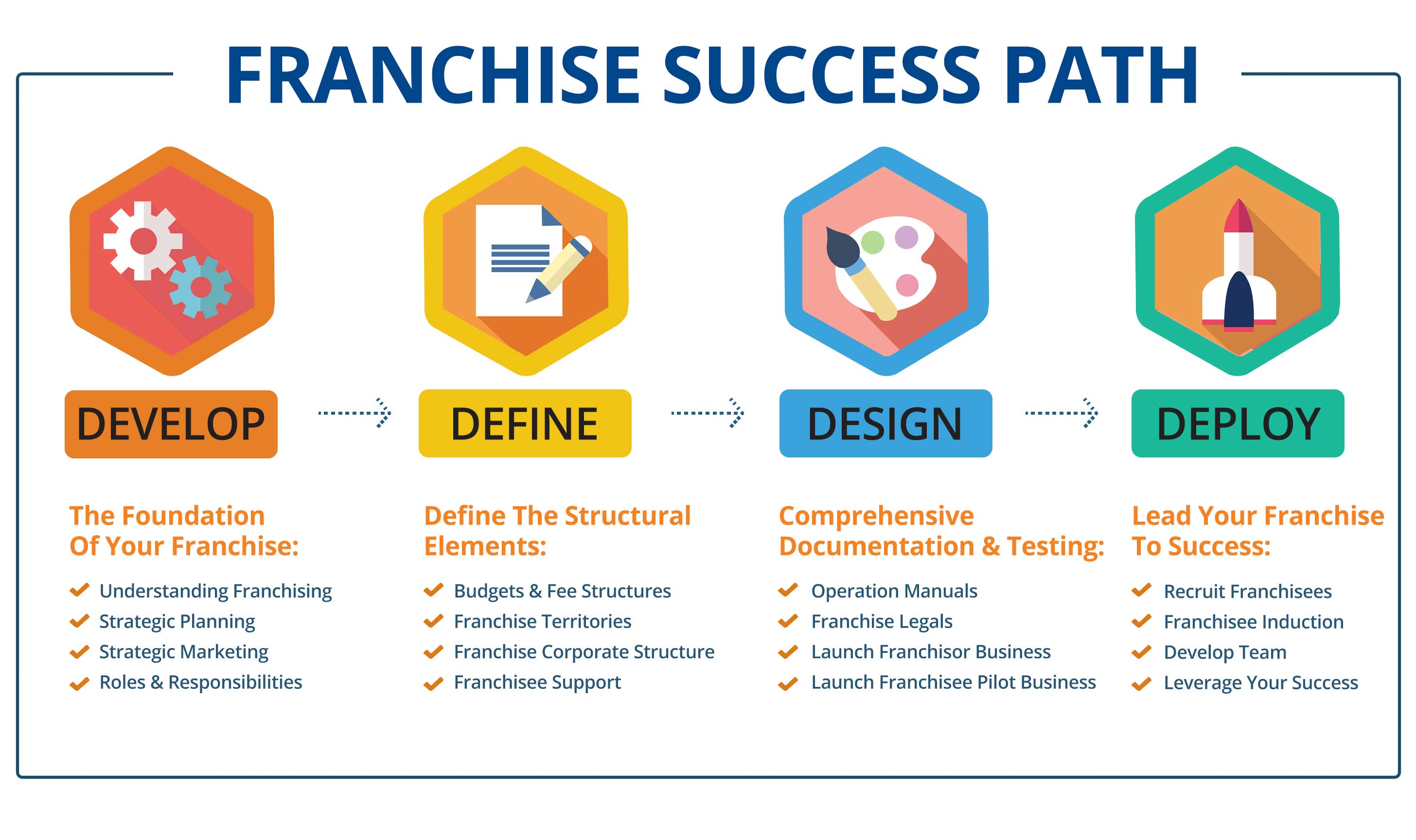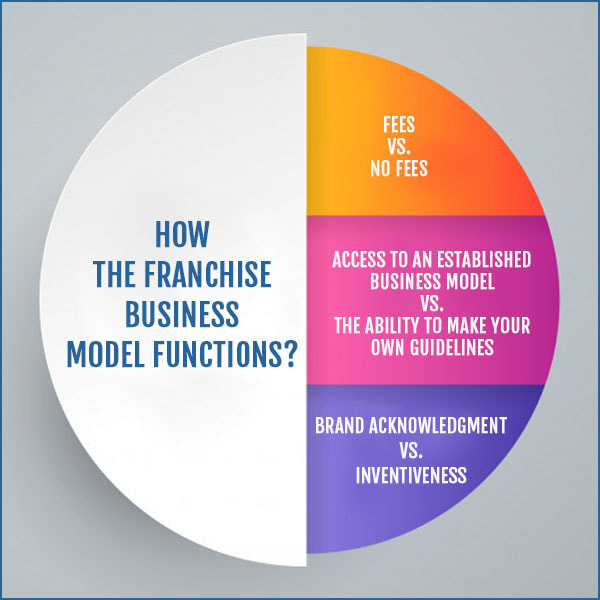How Do You Make Your Business A Franchise

Imagine your brainchild, a small bakery perhaps, brimming with the aroma of freshly baked bread and the happy chatter of loyal customers. You've poured your heart and soul into it, perfecting every recipe and crafting a unique atmosphere that keeps people coming back for more. Now, picture that same delightful scene replicated in towns and cities across the country, each location echoing the success and charm of your original creation.
That dream can become a reality through franchising. This article provides a roadmap on how to transform your thriving business into a franchise, detailing the key steps and considerations involved in this exciting but complex process.
Is Franchising Right for You?
Before diving in, honestly assess if your business is franchise-ready. Not every successful business translates well into a franchise model. According to the International Franchise Association (IFA), a crucial factor is a proven and replicable business model.
Key Indicators of Franchise Potential:
First, you need a proven track record of profitability. You should have a demonstrably successful business that operates consistently and efficiently. Second, a unique selling proposition (USP) is crucial.
What makes your business stand out from the competition? Is it a unique product, exceptional customer service, or a specialized operating system? Lastly, you must have clearly defined systems and processes that can be easily taught and replicated by franchisees.
The Essential Steps to Franchising
Franchising is a multifaceted process involving legal, financial, and operational considerations. Neglecting any of these areas can lead to significant problems down the line.
1. Develop a Franchise Disclosure Document (FDD)
The FDD is arguably the most important document in franchising. It's a legally mandated document that provides prospective franchisees with comprehensive information about your franchise system.
The FDD includes 23 specific items, covering everything from the franchisor's background and financial performance to the franchisee's obligations and restrictions. It also outlines all fees and costs associated with becoming a franchisee.
Creating a compliant and comprehensive FDD requires the expertise of a qualified franchise attorney.
2. Establish Your Legal Structure
You'll need to establish a separate legal entity for your franchising operations. This protects your existing business from potential liabilities associated with the franchise system. Common options include a limited liability company (LLC) or a corporation.
3. Develop Training and Support Programs
Your franchisees' success is directly tied to your training and support. Develop comprehensive training programs that cover all aspects of running the franchise.
This should include operational procedures, marketing strategies, customer service protocols, and financial management. Ongoing support is also essential to help franchisees navigate challenges and stay up-to-date on best practices.
4. Create an Operations Manual
The operations manual is the bible of your franchise system. It provides detailed instructions on every aspect of running the business, from opening procedures to closing routines. A well-written operations manual ensures consistency and standardization across all franchise locations.
5. Build a Strong Brand Identity
A strong brand is essential for attracting franchisees and customers. Develop a clear and consistent brand identity that reflects the values and personality of your business. This includes your logo, color palette, messaging, and overall brand experience.
Invest in marketing materials and strategies that promote your franchise opportunity to potential franchisees.
The Importance of Expert Guidance
Navigating the complexities of franchising is best done with the help of experienced professionals. This includes a franchise attorney, a franchise consultant, and an accountant.
A franchise attorney can help you create a compliant FDD and franchise agreement. A consultant can provide guidance on developing your franchise system and marketing your opportunity. An accountant can help you with financial planning and structuring your franchise fees.
"Franchising is a relationship business. Your success as a franchisor depends on the success of your franchisees." - IFA
Remember, building a successful franchise system is a marathon, not a sprint. It requires careful planning, dedication, and a commitment to supporting your franchisees. The potential rewards, however, can be significant, allowing you to expand your business, build a strong brand, and create opportunities for entrepreneurs across the country.
As you embark on this journey, remember the original spark that ignited your business. That passion, combined with a well-structured franchise system, can pave the way for enduring success and a legacy that extends far beyond your initial storefront.


















